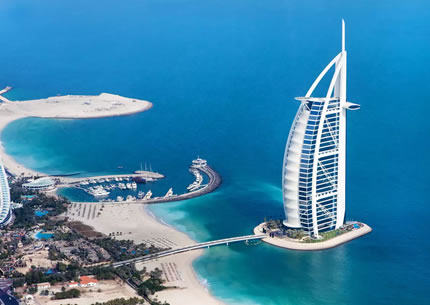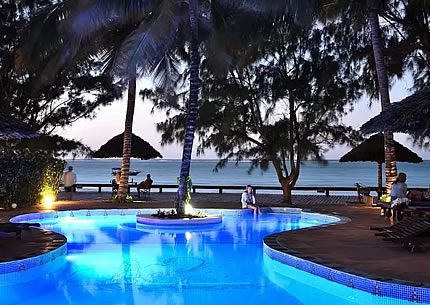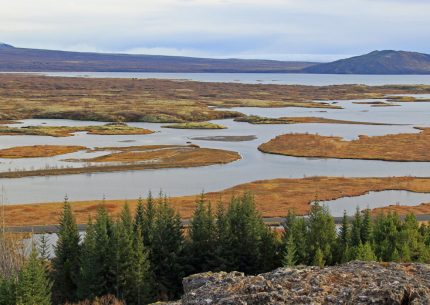IMPORTANT TIPS TO TRAVELLERS TO EAST AFRICA
VISA & PASSPORT
- A valid passport is required of all foreigners entering Kenya, Tanzania and Uganda. The passport needs to be valid 6months after the date of departure from Kenya, Tanzania or Uganda.
- Visa requirements vary according to country of origin. Most nationalities however, require visa to enter Kenya, Tanzania and Uganda. Clients must pay USD 50.00 per Person for the Visa.
VACCINATIONS
- A yellow fever and Cholera vaccination certificate is required in Kenya if visitors are arriving from countries where these diseases are present. Yellow fever certificate is required in Tanzania regardless of country of origin.
- Malaria prophylaxis is recommended for clients traveling to places outside the main cities – (like Masai Mara).
WHAT TO PACK
We advise all clients to pack as little as possible to minimize ‘headaches. Space on Safari vehicles is limited and on all domestic charter and scheduled flights baggage allowance is limited to 15kg / 33lb per person. Extra luggage can be stored in Nairobi at no cost. Following are some items we recommend for carrying:
- 1 or 2 pairs of Shorts
- 2 pairs Long Trousers or Skirts (for women)
- Swimming suit
- A smart evening attires
- T-shirts
- Long sleeved shirt or blouse
- A pullover or sweater
- Smart casual shoes and safari boots
- Underwear and socks enough for 3 days
- A jog –bra for women will be good for bumpy roads
- Light sleep wear
- Personal toiletries and insect repellent (although most lodges and camps provide them)
- Small carry-on bag
- Adequate supply of film
- Sun protection cream and hat
- Sun glasses
- Lastly do not forget to carry your Passport, vaccination certificates, airline tickets, money and credit cards.
COMMONLY ASKED QUESTIONS ABOUT TRAVEL TO KENYA
Is it safe to drink the water? What about ice?
It’s generally recommended that you drink and brush your teeth with bottled water only during your stay in Kenya both in Nairobi and whilst visiting the camps and lodges. Ice at the lodges is made with treated and filtered water.
What’s the climate like?
East Africa enjoys one of the most favorable climates in the world. Kenya lies directly on the equator and elevations vary from sea level at the coast to 3,000 - 7,000+ ft. on safari. The altitude should be taken into consideration especially for those who live on or near sea level. Generally, the days are warm and pleasant with cooler nights. In some areas such as the Masai Mara and Mt. Kenya areas, nights can be very chilly and in the northern region’s days can be quite hot. The coast region is hot and humid. There are two rainy seasons, triggered by the sun crossing the equator; the long rains in April and May and the short rains in November and December.
What about malaria?
Malaria prevention medication should be taken according to doctor’s instructions before during and after a visit to affected areas. Malaria is a serious tropical disease which is spread by night-biting mosquitoes which transmit a parasite. Therefore, avoiding getting bitten is essential and the most effect means to preventing the disease. Long sleeved shirts and trousers should be worn in the evenings and insect repellent used. Tents and lodge rooms are supplied with bug spray or “mozzie chips” for use at night.
What's the food like?
The food on safari is excellent and prepared to the highest standards. European cuisine is standard fare. Due to our wonderful climate, the fruits and vegetables are excellent and feature frequently in menu preparation. Kenyan-grown coffee and tea are served universally. Breakfast usually consists of eggs cooked to order accompanied by bacon, sausage, potatoes, grilled tomatoes and baked beans. Also served are cereals and toast as well as a large selection of fresh tropical fruits and juices. Lunch is often buffet with soup, a selection of salads, several main courses such as roasted meats or casseroles, pasta and vegetables and an unbelievable assortment of desserts. According to the lodge or camp, dinner will also be buffet or frequently table d’hôte with starters, soup, salad, choice of main course and dessert. Occasionally game meat such as impala, crocodile or ostrich is offered and sometimes traditional African foods like ugali and Sukuma wiki (corn meal and greens). The most common complaint about the food is the over-abundance of it!
How do we get around?
Transport is either in specially outfitted mini-vans which seat six passengers comfortably and have pop-up roofs for game viewing or in four-wheel-drive vehicles with roof hatches. One of these types of vehicles will be used for game drives and depending on your itinerary, transfers between destinations will either be by road, or by light aircraft on scheduled or chartered service.
What do I wear on safari?
Comfortable, casual clothing is best for safari life. Light to medium weight khaki trousers or shorts, skirts for women, and t-shirts work well. Generally, neutral colors are more acceptable in the bush. Sandals or sneakers are suitable footwear. There are few occasions for dressy clothes and “smart casual” (skirts or dressy trousers for women and trousers with collared shirts for men) would be the most required. Laundry is available at all camps and lodges so avoid bringing too much gear - one medium sized soft-sided duffel bag is ideal as space is limited in the vehicles and weight is restricted on all internal flights. Safari attire is available for sale in Nairobi. For details, see our recommended packing list
Do I need a visa?
Depending on the nationality of the passport you hold, you may. Check with your nearest Kenyan Consulate.
What if I get sick?
We recommend that you be adequately insured both with medical and traveler’s insurance with medical evacuation coverage out of the country should that become necessary. Health care services in Nairobi are quite good and up to date. Our clients can be enrolled in the Flying Doctors Society for a fee, which provide medical evacuation from the bush to a Nairobi hospital in the event of emergency.
What do we do all day?
The main focus on safari is wildlife observation and photography within the game reserves and national parks. There are also cultural opportunities such as tribal village visits and festive dancing performances. Many lodges have a pool and/or library and offer nature walks or other day-time activities and slide shows, lectures or videos in the evening.
How are the game drive activities?
Game drives start early to enhance possibilities of observing the wildlife while it’s active. Morning tea or coffee and biscuits are served before dawn and then its off in the vehicles to see what adventure awaits. The vehicles are comfortable and modified with special roof openings. They contain cool boxes which can be stocked with drinking water and soft drinks as per the clients request. Vehicles also have guide books for species identification. We suggest you slow down the pace and take time to observe the behavior of the animals. Oftentimes this will result in an unusual or unexpected surprise. Most game drives last about 3-4 hours before returning to camp for meals. Mid morning drives are offered in some locations or take time at leisure to relax. Late afternoon affords another opportunity to explore until sunset.
How much do I tip the drivers, waiters, porters and others?
Tipping is always discretional; however, it is appreciated as acknowledgment of service well rendered. Most lodges have a tip box which is either distributed amongst the entire camp staff OR to those behind the scenes. Check with camp management to discern the system. If the tips are distributed equally amongst the staff, please use the system to your own level of generosity. US$1 per bag or local equivalent is satisfactory for portage as is $2 per person, per day for dining staff. Recommended tips for driver/guides are $7-10 per person, per day. If at any time along the way someone provides you with special services it is appropriate to express your appreciation with a gratuity.
Can I charge my video camera battery on safari?
Yes. Mostly all the lodges and camps have facilities for charging batteries.
How much and what type of film should I bring?
The rule is to bring twice as much film as you think you’ll need. A variety of speeds to suit your camera and expertise should be included. Film is available in Nairobi at competitive prices but is expensive in the camps and lodges and may not be in stock. Game drives take place in the early morning and late evening hours when a faster speed might be appropriate. The tropical sun is strong so shots taken mid-day will require a slower speed. Professional photographers commonly use slide film but most people prefer prints.
What vaccinations are required?
Currently none are required to enter Kenya, although many Western health care providers recommend a full range of inoculations. A yellow fever certificate is required for entry to Tanzania, for travel between some African nations and for entry to other countries if you’ve been to any African destination within six months. Bear in mind that it’s unlikely tourists will come into contact with conditions which expose one to serious disease. Do your research, seek advice from your doctor and make the determination regarding shots accordingly.
Is it safe to go shopping in Nairobi?
With an exercise of common sense, it’s safe to shop in the down town section. Nairobi is a major metropolitan area and the largest city in Kenya. Like any big city, it draws a criminal element. Most incidents involve purse-snatching or stealing of watches and jewelry. We recommend that you go with a local escort who can guide you to appropriate areas. While out, don't wear any jewelry- in fact, it’s a good idea to leave all your jewelry at home. Always take a taxi at night.
What kind of shopping is available?
There is a full variety of shopping from fine art and jewelry to wonderful hand-crafts such as stone and wood carvings, batiks and basketry to name a few. There are books on the people, landscapes and wildlife of Kenya as well as field guides to assist identification of species and enhance your knowledge on safari
What about the electricity?
Kenya’s electricity supply is 210-240 volts. The outlets are designed for a three pronged flat-pinned plug.s




Add a review